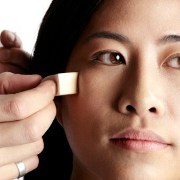Treatment
Rosacea generally can't be cured. It can be controlled. There are several ways to manage rosacea. Your doctor may recommend more than one, depending on your condition.
Medications
Prescription medications for rosacea include:
- Antibiotics applied to the skin
- Other topical treatments such as azelaic acid , sulfa, or tretinoin (Retin-A)
- Antibiotics taken by mouth
In more severe cases, medications may sometimes include:
- Oral isotretinoin (Accutane)
- In very rare more severe recalcitrant cases, oral methotrexate , dapsone , primaquine, chloroquine, or prednisone
*Topical cortisone is generally avoided on the face. It can make rosacea worse in the long run. It can be effective as very short-term treatment.
Treatment for redness or flushing may include:
- Clonidine in low doses
- Beta blockers (certain types)
Surgery
The following procedures minimize redness, enlarged blood vessels, and an enlarged nose:
- Electrosurgery—uses a tiny electric needle
- Laser surgery—uses a laser
Please be aware that this information is provided to supplement the care provided by your physician. It is neither intended nor implied to be a substitute for professional medical advice. CALL YOUR HEALTHCARE PROVIDER IMMEDIATELY IF YOU THINK YOU MAY HAVE A MEDICAL EMERGENCY. Always seek the advice of your physician or other qualified health provider prior to starting any new treatment or with any questions you may have regarding a medical condition. Copyright © 2024 EBSCO Publishing All rights reserved.
 10 Ways to Treat Rosacea During Winter Months
10 Ways to Treat Rosacea During Winter Months




